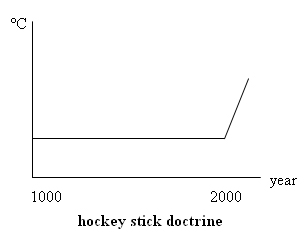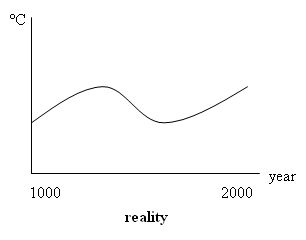Nejnovější
- Václav Klaus pro iDNES: SMS považuji za nešťastné, ale žádné vydírání to není
- Ivo Strejček: Pražský hrad jako centrum opoziční politické moci
- Ladislav Jakl: Kapitalismu je 35. Všechno nejlepší a dlouhá léta
- Václav Klaus pro Protiproud: O střetu Hradu s vládou 35 let po spuštění kapitalismu
- Budoucnost Evropy v éře dnes probíhajících geopolitických posunů
Nejčtenější
Hlavní strana » English Pages » Introduction to the…
Introduction to the Presentation of the book Planet Azul (No Verde) in Madrid
English Pages, 22. 10. 2008
It is my great pleasure to be again in Madrid – after long four years – and to have the opportunity to present my book “Planeta azul (no verde)” here today.
I am really glad that this book of mine has – after Czech, English, German, Dutch, Russian and Polish editions – also its Spanish version, una versión española. I would like to thank all those who helped to make this possible, most of all José María Aznar and his Fundación para el análisis y los estudios sociales (FAES) and of course Natalia Bellusova who translated the book into Spanish.
I am more and more convinced that the topic of the book is most important. It’s much more important than the financial panic we are witnessing these days and more dangerous also. Current financial problems may eventually even help because they may motivate people to think twice what to do, where the real priority is, and where to put taxpayer’s money with such an evidently doubtful and counterproductive effect as is the fighting of climate. I tried to express my strong feeling about this already in the subtitle of my book “¿Qué está en peligro, el clima o la libertad?” My answer to this question is very clear and straightforward: “Es la libertad que está en peligro, el clima está bien.”
It is necessary to start with the clarification of one frequent misunderstanding, which I so strongly realized last week while making an interview with a reporter from your daily ABC. I repeatedly see that people confuse (or mix together) two basically different things – a necessary protection of the environment /proteccion del medio ambiente/ (necessary protection because there is no doubt that we have to take care of our rivers, lakes, seas, forests and air) and an irrational attempt to fight or even to protect the climate /proteger el clima/. I am very much in favor of rational efforts when it comes to environmental protection, but I resolutely reject any attempts to change – or as I frequently hear to combat – climate.
After having spent years studying this issue I came to the conclusion that we have been constantly deceived. The Great Global Warming Debate is not about temperature or CO2 levels. It is not a scientific dispute inside climatology. It is a clash between those who want to change us (not climate) and those who believe in freedom, markets, human ingenuity, and technical progress. It is a dispute about us, about people, about human society, about our values, about our habits, about our life, about nuestra vida.
Global warming doctrine – nowadays a crucial part of environmentalism – is an ideology which uses (or better to say misuses) some elements of scientific enquiry for a totally non-scientific goals and aims. Its goal is to mastermind the world and all of us.
In my book and in all my other texts and speeches devoted to this issue, I try to demonstrate the swindle and the emptiness of the environmentalists’ dogma. Its main postulates can be summarized in the following way:
- the world has been getting warmer;
- the people are to blame;
- we are facing a major catastrophe;
- usual, and quite natural adaptation of human beings to changing circumstances, up to now many times proven and found sufficient, will not help;
- aggressive mitigation, which means attempts to change climate, temperature and CO2 emissions, however costly it may be, must start immediately.
We should say very loudly that these views are untenable, estos puntos de vista no tienen fundamentos.
I am not convinced that we witness a unique, unprecedented, large and man-made global warming. On the contrary, the available evidence tells me that:
1. The warming is not global. /El calentamiento no es global/. It exists only in cold, but not in tropical regions, in dry, not wet areas, in the winter, not in the summer, and during the nights, not during the days. That is not a global warming;
2. The warming is not large. /El calentamiento no es grande/. Let’s look at available data. A very aggressive lady-journalist in Seattle, USA, three weeks ago, in the debate after my lecture there, was shocked by my - for her - politically absolutely incorrect views. She did not, however, know and did not want to believe me that the average temperature increase in the last century in the whole world was only 0.74 °C.
3. The warming is not unique and unprecedented. /El calentamiento no es unico y sin precedentes/. Everyone knows it but the IPCC in its 2001 Report tried to tell us that it is unique. The authors of this document based their argumentation on the famous hockey stick, which was afterwards subject to disastrous critique and, as a result, irreversibly rejected.


4. The mild warming we experience is also not exclusively man-made or CO2-made. There are many other factors influencing the temperature and climate and we know that the whole very complex and insufficiently understood climate system is full of major uncertainties.
We, nevertheless, see that our political leaders, our governments and many people as well are accepting the environmentalist and global warming alarmist mantra. The question is why. My answer is that it is because the people are immensely manipulated by Al Gore and other protagonists of these ideas. The people are permanently, day by day, exposed to a very powerful lying and cheating. The children are mystified in schools, the adults on their TVs. And that is the reason why we have to raise our voice and challenge this blatant propaganda.
At a similar presentation last week at the Warsaw School of Economics, one student expressed his agreement with my views about warming but asked me where I see the threat to freedom because he doesn’t see it. I tried to tell him that global warming alarmism asks for an almost unprecedented expansion of government intrusion, intervention and control of our lives. We are forced to accept rules about how to live, what to do, how to behave, what to consume, what to eat, how to travel. Moreover, the advocates of this ideology warn us that if we do not follow their requests voluntarily, they will force us to do so. Both we as individuals, and as nations.
I will give an example that shocked me. One, in his own words, “global business leader” (of Swedish origin) founded recently the so called 3C Initiative (Combat Climate Change). He wants – I quote from his article published in a serious quarterly journal “The International Economy” – “zero emissions as a norm,” otherwise – and I quote again – “mankind will be headed for catastrophic change, human life as we know it will be impossible in many places around the world.” To stop it, all countries must cooperate, if not, “there is a threat that the ultimate instrument of politics, armed conflict, will have to be used.” These words are incredible for me and I hope for all of us. This man also innocently reveals his own very clear and very down to earth interests by saying that “this will be the greatest investment opportunity since the rebuilding efforts after World War II.”* He forgot to add “with taxpayer’s money
To return to my book, I would like to stress that it is not about climatology. It belongs to the field of the economics of global warming as can be seen from the titles of individual chapters of the book. The most important argument is – in my understanding – the way how to look at the future and how to approach the intergenerational solidarity (or discrimination) dilemma the people are inevitably, day by day, facing. Especially when they deal with long time intervals. This requires the standard application of the economic concept of discounting. We have to look at this crucial issue rationally – not with ethical or moralistic apriorisms – but with taking into account the opportunity costs of fighting the climate. These costs are nonzero and the discount rate, used in climatologist models, shouldn’t be zero either. In this respect the infamous Stern Report is fundamentally wrong.
To conclude, I don’t think that radical, human freedom and prosperity endangering measures and policies are necessary. Human adaptation, human flexibility, technical progress and the markets will be sufficient. Creo que esta es tambien la actitud de la Fundación para el análisis y los estudios sociales /I believe this is also the attitude of FAES/.
Václav Klaus, Mutua Madrileña, Madrid, 22. October 2008
* L. G. Josefsson, “The Economics of Climate Change,” In: The International Economy, Summer 2008. (Even the title of the article is entirely misleading).
- hlavní stránka
- životopis
- tisková sdělení
- fotogalerie
- Články a eseje
- Ekonomické texty
- Projevy a vystoupení
- Rozhovory
- Dokumenty
- Co Klaus neřekl
- Excerpta z četby
- Jinýma očima
- Komentáře IVK
- zajímavé odkazy
- English Pages
- Deutsche Seiten
- Pagine Italiane
- Pages Françaises
- Русский Сайт
- Polskie Strony
- kalendář
- knihy
- RSS
Copyright © 2010, Václav Klaus. Všechna práva vyhrazena. Bez předchozího písemného souhlasu není dovoleno další publikování, distribuce nebo tisk materiálů zveřejněných na tomto serveru.
















